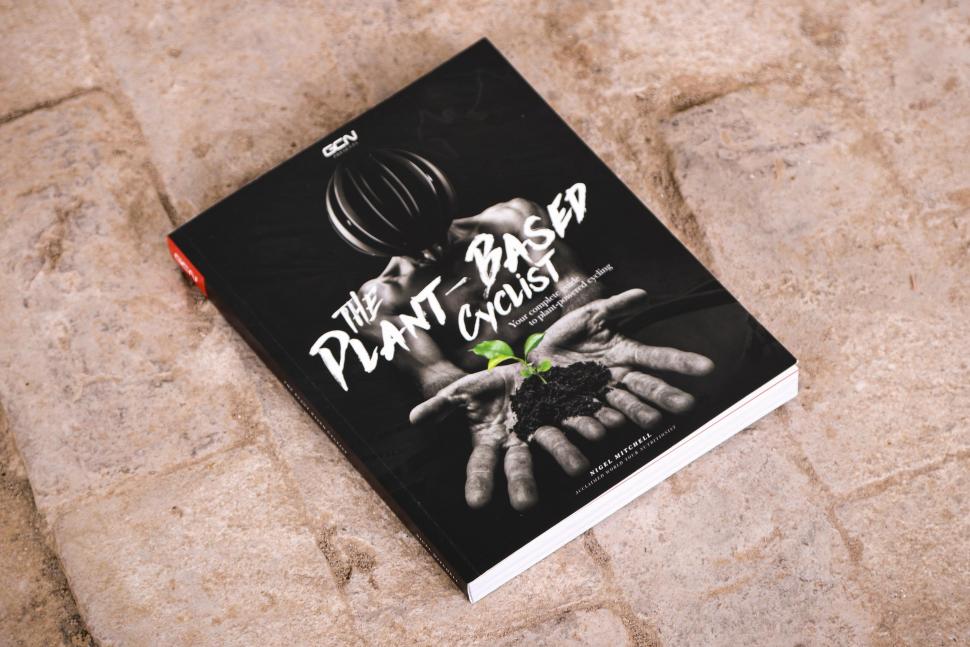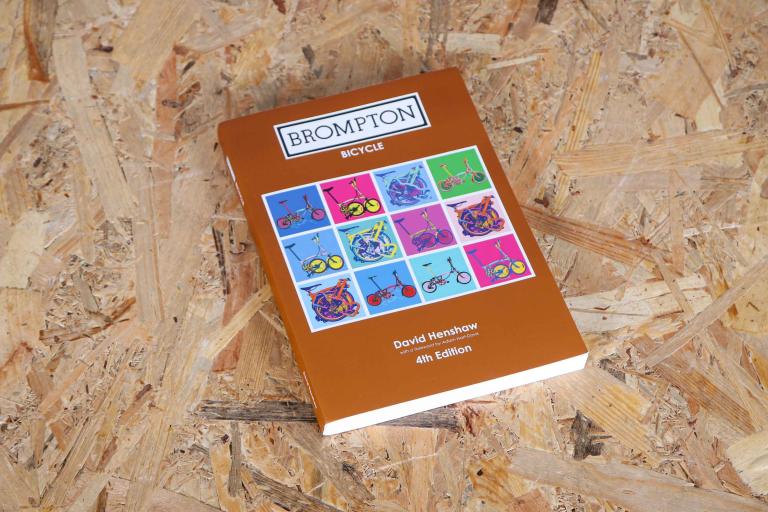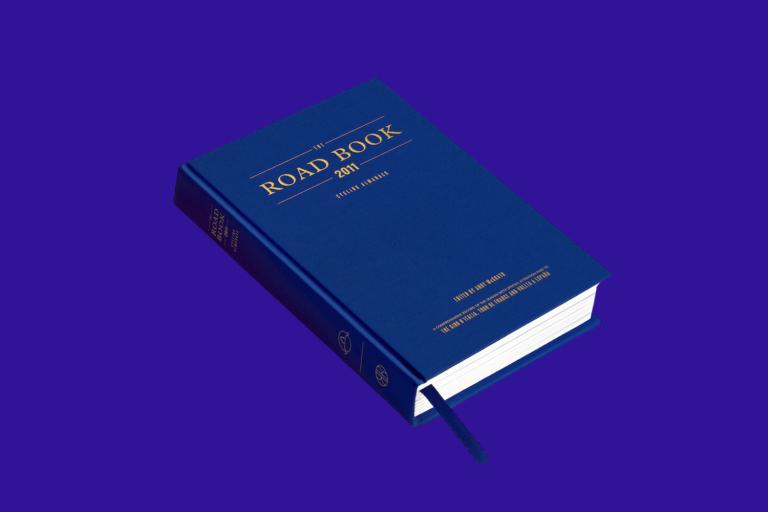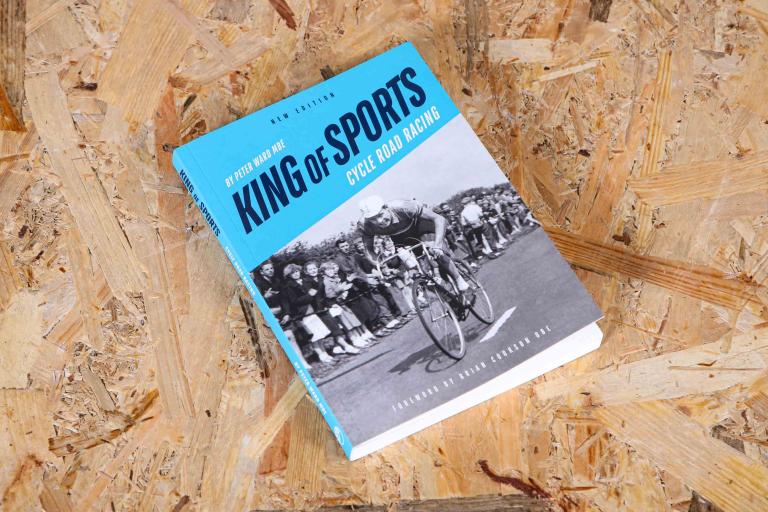- News
- Reviews
- Bikes
- Components
- Bar tape & grips
- Bottom brackets
- Brake & gear cables
- Brake & STI levers
- Brake pads & spares
- Brakes
- Cassettes & freewheels
- Chains
- Chainsets & chainrings
- Derailleurs - front
- Derailleurs - rear
- Forks
- Gear levers & shifters
- Groupsets
- Handlebars & extensions
- Headsets
- Hubs
- Inner tubes
- Pedals
- Quick releases & skewers
- Saddles
- Seatposts
- Stems
- Wheels
- Tyres
- Tubeless valves
- Accessories
- Accessories - misc
- Computer mounts
- Bags
- Bar ends
- Bike bags & cases
- Bottle cages
- Bottles
- Cameras
- Car racks
- Child seats
- Computers
- Glasses
- GPS units
- Helmets
- Lights - front
- Lights - rear
- Lights - sets
- Locks
- Mirrors
- Mudguards
- Racks
- Pumps & CO2 inflators
- Puncture kits
- Reflectives
- Smart watches
- Stands and racks
- Trailers
- Clothing
- Health, fitness and nutrition
- Tools and workshop
- Miscellaneous
- Buyers Guides
- Features
- Forum
- Recommends
- Podcast
review
 GCN The Plant-Based Cyclist Book
GCN The Plant-Based Cyclist Book£14.99
VERDICT:
Useful source of information about becoming more plant-based in your diet, although more recipes would be nice
Interesting info
Readable
Easily navigable
A few more recipes would be good
Weight:
692g
Contact:
At road.cc every product is thoroughly tested for as long as it takes to get a proper insight into how well it works. Our reviewers are experienced cyclists that we trust to be objective. While we strive to ensure that opinions expressed are backed up by facts, reviews are by their nature an informed opinion, not a definitive verdict. We don't intentionally try to break anything (except locks) but we do try to look for weak points in any design. The overall score is not just an average of the other scores: it reflects both a product's function and value – with value determined by how a product compares with items of similar spec, quality, and price.
What the road.cc scores meanGood scores are more common than bad, because fortunately good products are more common than bad.
- Exceptional
- Excellent
- Very Good
- Good
- Quite good
- Average
- Not so good
- Poor
- Bad
- Appalling
The Plant-Based Cyclist is an interesting and informative book that gives the lowdown of the realities of a vegan diet for cycling, although it would be good to have a few more recipes.
In recent years there has been an increase in the number of people adopting a plant-based diet for many reasons, including health, weight loss, or environmental concerns. This has also been true for cyclists, and with the famous Linda McCartney team founded in 1988, there have been non-meat diets throughout the pro-peloton for many years. The issue that many have is that traditional prep and recovery meals tend to revolve around animal-based products, not just meat but also pasta if it's made with egg (and other egg-based meals).
The Plant-Based Cyclist has been written in order to give a little more information about doing this successfully. The author is Nigel Mitchell, who has worked with British Cycling, Team Sky, and Cannondale on their nutritional programmes.
The book itself focuses less on specific recipes and more on the science behind different food groups and the plant-based options available. It means that throughout the 241 pages, there are only 23 recipes; it would have been nice to have a few more, but given there are a lot of facts and data about many of the ingredients you are likely to use, it gives you enough information that can be used to make decisions on other recipes too.
Navigating the book is relatively simple if you want to find out something specific, with chapters and subheadings listed in the contents. This allows you, for instance, to find out information about fuelling for an evening club ride or an early morning time trial. I found this particularly useful for planning for specific ride types as, currently in lockdown, I've been going out at all times of the day.
> How to eat right for long rides and sportives
It doesn't just tell you what to do in specific circumstances, though, it also helps you to prepare for a plant-based diet in general, with chapters on stocking cupboards, the equipment you will need, and how to best prepare for travelling while staying plant-based.
The recipes themselves are relatively easy to follow, although I'd have preferred having them laid out step-by-step rather than as a single block of text. I did occasionally find myself needing to read back through previous steps in order to find where I was and what I needed to do next. Particular favourites included the tofu risotto and pistachio nut butter.
A nice touch for the recipes was how some took traditional ride fuel or meals, like flapjacks and rice cakes, and essentially talked you through how you could adapt them to remove animal products.
> Read more road.cc reviews of cycling books here
Another positive about the recipes is that there are none that are particularly involved, and none took me over 40 minutes to prepare – something that those of us who aren't exactly Delia Smith might find particularly useful.
That said, it would have been nice to have a few more complex dishes or a bit more variety. For instance, there were only really three of the recipes that I would consider as 'meals', with most of the others being fuelling foods, drinks or small dishes.
However, the focus of the book is definitely more on the scientific and performance elements of diet, so this could be forgiven. The book, in fact, would even be useful for those who aren't necessarily looking purely at a plant-based diet because there is a lot of information about effective fuelling and recovery strategies that are not specific to a vegan diet.
At £14.99, the price is pretty much in line with other nutrition books we've reviewed on road.cc, such as Fuelling the Cycling Revolution at £16.99, and the more recipe-focused Feed Zone Table, which Dave looked at a couple of years ago, at £17.95.
Overall I liked this book. It is readable, easily digestible (sorry!), and easy to reference when needed. It would have been nice to have a few more recipes and a bit more variety for more complex meals, but given that the book is more of a holistic overview, it makes sense.
Verdict
Useful source of information about becoming more plant-based in your diet, although more recipes would be nice
road.cc test report
Make and model: GCN The Plant-Based Cyclist
Size tested: 244 pages
Tell us what the product is for and who it's aimed at. What do the manufacturers say about it? How does that compare to your own feelings about it?
It is a guide to cycling while using a plant-based diet, focused mainly on the scientific and performance elements.
GCN says: 'Your accessible, complete and practical 244-page guide to plant-powered cycling'
Tell us some more about the technical aspects of the product?
Product Details:
Pages: 244 (120gsm)
Size: 246mm (h) x 189mm (w)
Cover: Paperback
Cover Finish: 280gsm, with anti-scuff matte laminate and spot UV gloss finish
Weight: 700g approx.
Rate the product for quality of construction:
8/10
Well bound.
Rate the product for performance:
8/10
Rate the product for durability:
8/10
Not normally something we rate in a book review, but its wipe clean cover means you can wipe down if you spill ingredients on it.
Rate the product for value:
6/10
Tell us how the product performed overall when used for its designed purpose
It's simple to understand the concepts and the way it is laid out means that finding the relevant information is easy.
Tell us what you particularly liked about the product
The referencing, it's really simple to find relevant information.
Tell us what you particularly disliked about the product
Could have done with a few more recipes.
How does the price compare to that of similar products in the market, including ones recently tested on road.cc?
We took a look at Fuelling the Cycling a couple of years ago, which takes a similar approach, and that comes in at £16.99. Dave also looked at Feed Zone Table a couple of years ago, which is more recipe-focused, and comes in at £17.95.
Did you enjoy using the product? Yes
Would you consider buying the product? Yes
Would you recommend the product to a friend? Yes
Use this box to explain your overall score
It is a useful reference book to help cyclists who are looking to adopt more plant-based foods in their performance plans or who are simply looking to understand how food can play more of a part in their performance.
About the tester
Age: 32
I usually ride: CAAD13 My best bike is: Cannondale Supersix Evo
I've been riding for: Under 5 years I ride: Every day I would class myself as: Expert
I regularly do the following types of riding: commuting, club rides, sportives, general fitness riding, fixed/singlespeed, mtb,
George is the host of the road.cc podcast and has been writing for road.cc since 2014. He has reviewed everything from a saddle with a shark fin through to a set of glasses with a HUD and everything in between.
Although, ironically, spending more time writing and talking about cycling than on the bike nowadays, he still manages to do a couple of decent rides every week on his ever changing number of bikes.
Latest Comments
- aramaerospace 41 sec ago
Plastics are a world of their own - some are even more durable than many metals. We work with abrasion-resistant specialty plastics that offer...
- Geoff H 1 hour 39 min ago
I was really enjoying the article until I came to the price!
- OldRidgeback 2 hours 32 min ago
I have a very old MTB (guess what make) that I'll happily leave locked at the train station or shops or whatever. The fairly new Trek MTB or...
- TheBillder 4 hours 7 min ago
Dualling that stretch of the A7 will allow hard-pressed motorists to travel very slightly faster between the rock that is the Sherriffhall...
- BikingBud 4 hours 15 min ago
I refer to being an engineer only to emphasise my consideration of the logical approach that should be applied in the justice system, rather than...
- David9694 5 hours 45 min ago
Parking fail as car left teetering on top of stone wall Oh dear https://www.devonlive.com/news/local-news/parking-fail-car-left-teeterin...
- jaymack 7 hours 4 min ago
We must be related!
- The_Ewan 8 hours 34 min ago
But why worry if a few people do? It's just not a big deal....
- Tom_77 9 hours 37 min ago
Tempted to get him a sweary birthday cake like in The Thick Of It....
- Bigtwin 10 hours 6 min ago
Didn't happen did it? They came into my shop a couple of years back and said it was "on the way", but never heard anything more.




Add new comment
1 comments
Go VEGAN
It's science not meal planning.
Meals are easy to find.